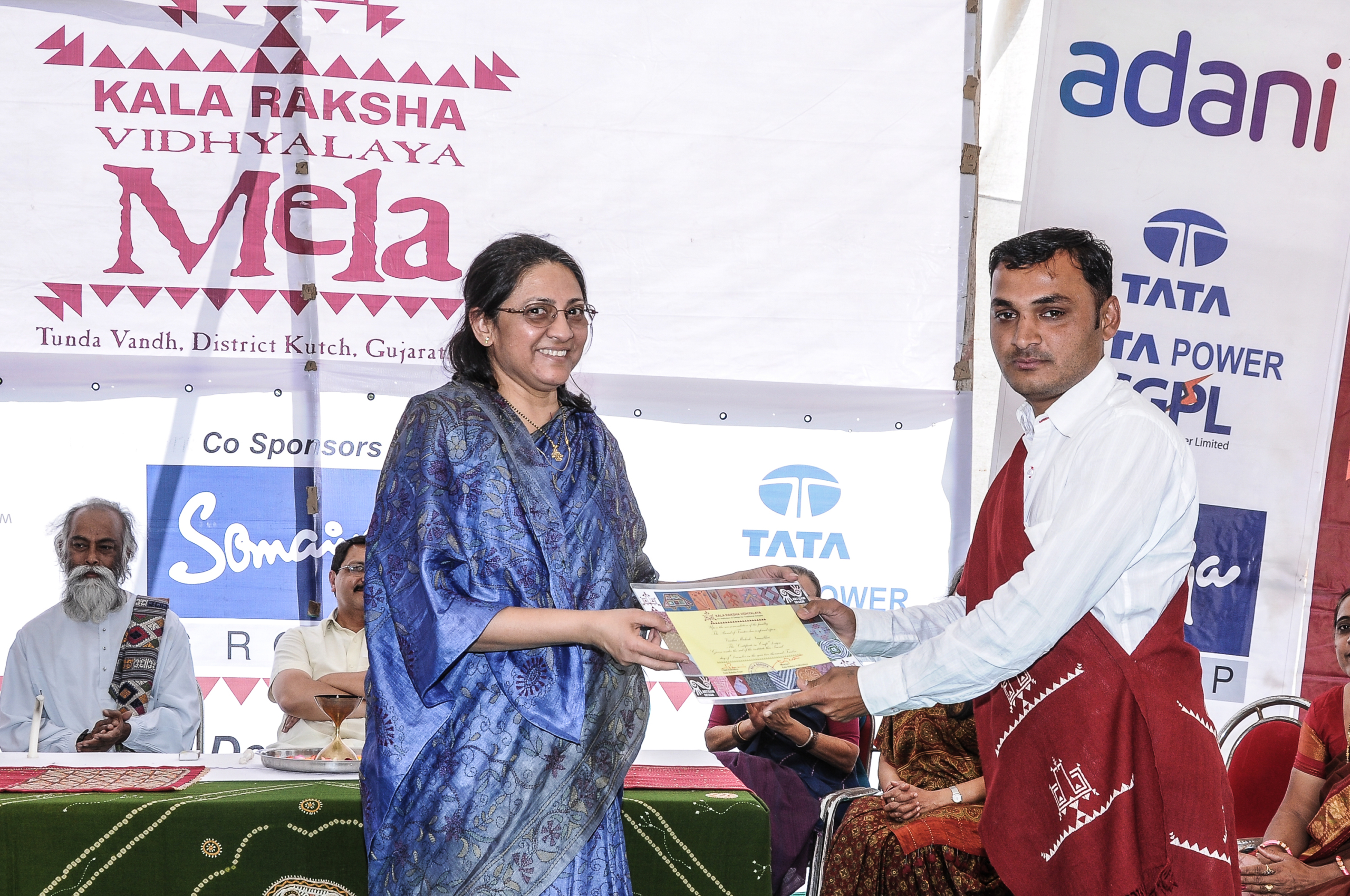CSR & Craft
 In 2012, the Kala Raksha Vidhyalaya Convocation was sponsored by Tata Power, Adani group and the K.J.Somaiya Trust. Today, Tata and Adani have their own craft CSR projects. The K.J. Somaiya Gujarat Trust now operates the design education program as Somaiya Kala Vidya. What happened between 2012 and now?
In 2012, the Kala Raksha Vidhyalaya Convocation was sponsored by Tata Power, Adani group and the K.J.Somaiya Trust. Today, Tata and Adani have their own craft CSR projects. The K.J. Somaiya Gujarat Trust now operates the design education program as Somaiya Kala Vidya. What happened between 2012 and now?
I have outlined key issues of craft from the ground level perspective: the essence of craft is handmade; pervasive devaluing of hand work challenges maker communities; to sustain a living tradition, artisans must directly access better markets. My solution was design education for artisans, promoting independence. The challenge was that quality education costs more than artisans can afford. The program needed funding.
Because craft has been positioned as inferior manufacturing in need of intervention to survive it was an easy focus for CSR projects, and initially Kala Raksha Vidhyalaya received much needed CSR support.
But as CSR craft projects proliferated, corporates found it more beneficial to keep CSR projects inhouse than to support existing projects. They opted for quick fix intervention: “helping” connect artisans to markets, and set up new companies to market craft.
Today in Kutch, CSR projects vie for weavers and dyers to produce for their brands. The net result is regressive. Rarely are CSR products designed by the artisans who make them; even more rarely are artisans named. The power differential between artisans and companies is even greater than that between artisans and money lender master artisans. Artisans become daily wage workers like those in the industry that produced the excess capital that must be invested in CSR.
Independent artisan designers now compete with corporate brands to employ artisans to grow their enterprises, and to sell small-scale creation at prices competitive with production craft. The CSR message is size = power, and individual artisans are irrelevant.
Gandhi’s concept of companies responsible to the society from which they derive resources and income had merit. But As Annapurna pointed out, the concept of CSR has been manipulated to benefit companies rather than address inequalities of ownership.
Corporates inevitably think from an industrial/business perspective. Sustainability of hand craft traditions rests on understanding craft as cultural heritage, not merely livelihood. Preservation rests on value. Artisans don’t need help. They need veneration.
Photo Credit: Ketan Pomal, LM Studio, Bhuj



